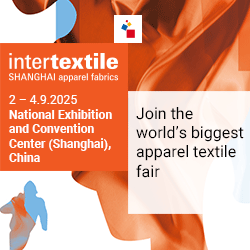Secretary General of the Indonesian Small and Medium Industry Entrepreneurs Association (APIKMI), Widia Erlangga asked the government to immediately evaluate the safeguard policies for imported textile raw materials.
According to him, the cartel exploited this policy, which was detrimental to IKM players in the garment and convection sector. As also agreed by the Director General of Small and Medium Industries (IKMA), Ministry of Industry, Gati Wibawaningsih.
"One interesting thing was conveyed by Mrs. Gati Wirawaningsih, Director General of IKMA of the Ministry of Industry, regarding the existence of parties who take advantage of the current situation. So that it creates cartel practices, the possibility is very true that there is a cartel of raw materials," he said.
He revealed, currently the majority of IKM players in the garment and convection sector are facing difficult conditions due to the emergence of naughty practices of raw material cartels that take advantage of safeguard policies. Facts on the ground show that after the safeguard policy was implemented, for 1.5 years the price of local textile raw materials could increase by up to 30 percent.
"This is due to the lack of supply for the domestic market, while imported textile raw materials are very difficult to obtain. Then this is an opportunity for these parties to increase the price of textile raw materials currently available in the domestic or local market," he explained.
This is further exacerbated by the ease of entry of finished goods (garments) imported from China and Thailand to Indonesia. Considering that the selling price of imported finished goods is much cheaper than the production of IKM players who are hit by high raw material prices.
"In this case, IKM players find it very difficult if they have to reduce the price of their finished goods in order to compete with imported finished goods that are currently flooding domestic markets. This is because the increase in raw material prices directly affects the high production costs they have to bear. , "he said.
Therefore, the Government is encouraged to immediately review and make a policy that at least can relieve the IKM players in the garment or garment sector. One of them is implementing a safeguard policy for imported finished goods.
"So that the prices of goods produced by IKM players in the garment or convection sector can compete with imported finished goods (garments), which are currently increasing significantly," he explained.
He continued, strict sanctions must also be given to parties who deliberately take advantage of the current situation so that the increase in local textile raw materials is inevitable. This is intended to create a deterrent effect to protect the continuity of the SMI business in the garment and convection sector.
"Regarding this matter, it really needs to be traced carefully, who are the parties in question? The parties who can use the loopholes and take advantage of the current situation," he stressed.





